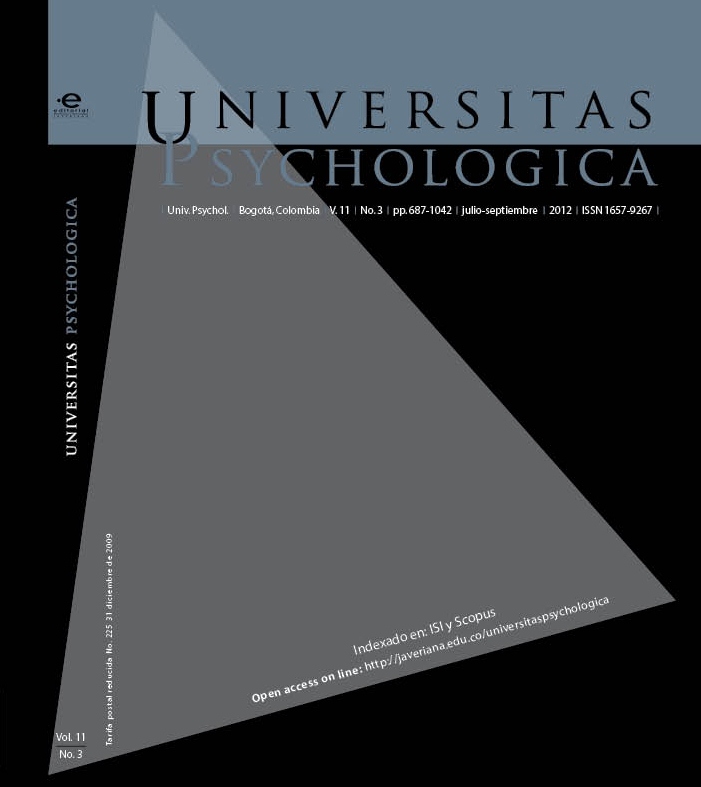Abstract
This study examined the relation between the social construction of gender attributes and stereotypes, and the presence of domestic violence against women. The participants were 1.200 subjects of both sexes, over 18 years of age, residing in different locations in Spain. Participants positively value the gender attributes that constitute the female image. However, they tend to markedly stereotype themselves according to gender. Regarding the transmission of gender attributes in the education of children, there are differences related to the sex of the educator, mothers being more rigid in their parenting. Concerning the assessment of gender attributes in romantic relationships, the subjects tend to prefer strongly stereotyped couples. In relation to the assessment of the gender prototypes broadcast by the media, both sexes agree on their desire to perceive more stereotyped male and female figures. An association between domestic violence and male gender attributes was found, as well as the description of abusive men as violent persons and of women as passive, and the notion of courage as the main characteristic needed to break the cycle of violence.
This journal is registered under a Creative Commons Attribution 4.0 International Public License. Thus, this work may be reproduced, distributed, and publicly shared in digital format, as long as the names of the authors and Pontificia Universidad Javeriana are acknowledged. Others are allowed to quote, adapt, transform, auto-archive, republish, and create based on this material, for any purpose (even commercial ones), provided the authorship is duly acknowledged, a link to the original work is provided, and it is specified if changes have been made. Pontificia Universidad Javeriana does not hold the rights of published works and the authors are solely responsible for the contents of their works; they keep the moral, intellectual, privacy, and publicity rights. Approving the intervention of the work (review, copy-editing, translation, layout) and the following outreach, are granted through an use license and not through an assignment of rights. This means the journal and Pontificia Universidad Javeriana cannot be held responsible for any ethical malpractice by the authors. As a consequence of the protection granted by the use license, the journal is not required to publish recantations or modify information already published, unless the errata stems from the editorial management process. Publishing contents in this journal does not generate royalties for contributors.


